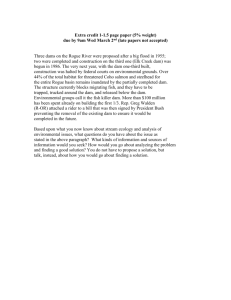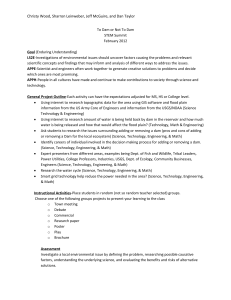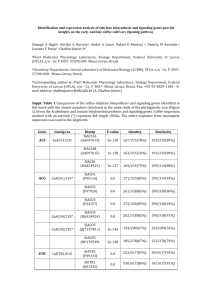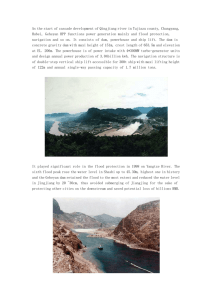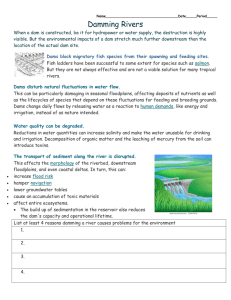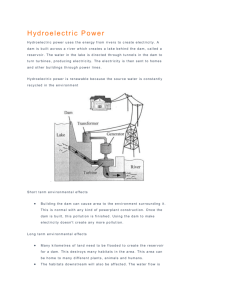Exmo Sr
advertisement
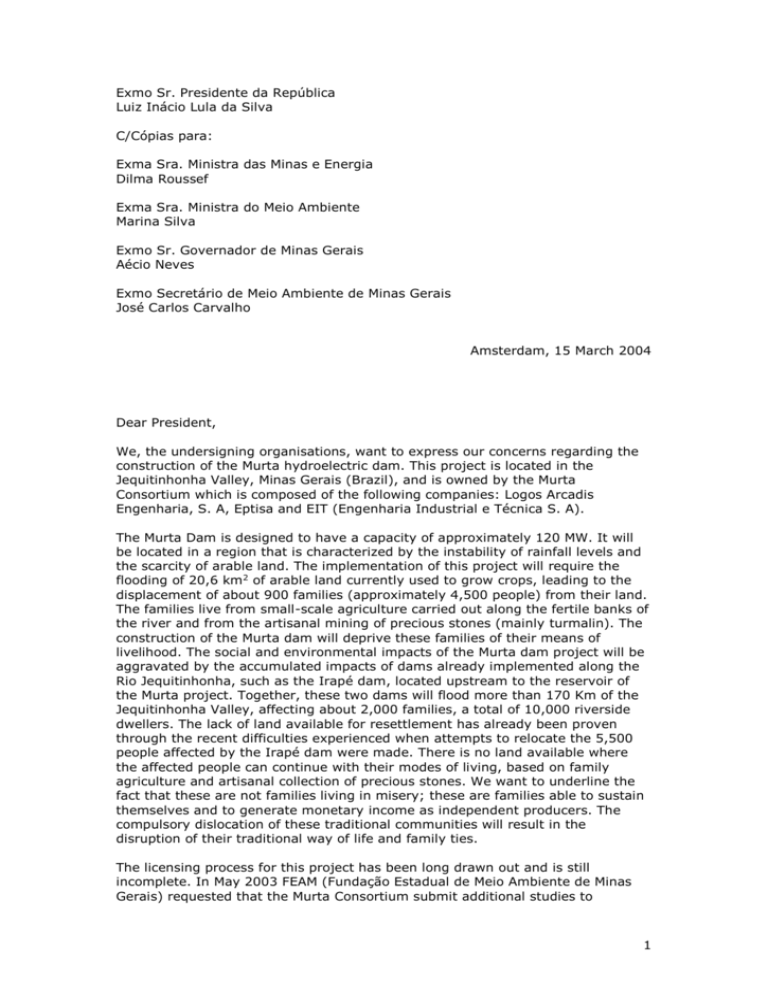
Exmo Sr. Presidente da República Luiz Inácio Lula da Silva C/Cópias para: Exma Sra. Ministra das Minas e Energia Dilma Roussef Exma Sra. Ministra do Meio Ambiente Marina Silva Exmo Sr. Governador de Minas Gerais Aécio Neves Exmo Secretário de Meio Ambiente de Minas Gerais José Carlos Carvalho Amsterdam, 15 March 2004 Dear President, We, the undersigning organisations, want to express our concerns regarding the construction of the Murta hydroelectric dam. This project is located in the Jequitinhonha Valley, Minas Gerais (Brazil), and is owned by the Murta Consortium which is composed of the following companies: Logos Arcadis Engenharia, S. A, Eptisa and EIT (Engenharia Industrial e Técnica S. A). The Murta Dam is designed to have a capacity of approximately 120 MW. It will be located in a region that is characterized by the instability of rainfall levels and the scarcity of arable land. The implementation of this project will require the flooding of 20,6 km2 of arable land currently used to grow crops, leading to the displacement of about 900 families (approximately 4,500 people) from their land. The families live from small-scale agriculture carried out along the fertile banks of the river and from the artisanal mining of precious stones (mainly turmalin). The construction of the Murta dam will deprive these families of their means of livelihood. The social and environmental impacts of the Murta dam project will be aggravated by the accumulated impacts of dams already implemented along the Rio Jequitinhonha, such as the Irapé dam, located upstream to the reservoir of the Murta project. Together, these two dams will flood more than 170 Km of the Jequitinhonha Valley, affecting about 2,000 families, a total of 10,000 riverside dwellers. The lack of land available for resettlement has already been proven through the recent difficulties experienced when attempts to relocate the 5,500 people affected by the Irapé dam were made. There is no land available where the affected people can continue with their modes of living, based on family agriculture and artisanal collection of precious stones. We want to underline the fact that these are not families living in misery; these are families able to sustain themselves and to generate monetary income as independent producers. The compulsory dislocation of these traditional communities will result in the disruption of their traditional way of life and family ties. The licensing process for this project has been long drawn out and is still incomplete. In May 2003 FEAM (Fundação Estadual de Meio Ambiente de Minas Gerais) requested that the Murta Consortium submit additional studies to 1 complement the original Environmental Impact Assessment (presented in 1998), within a period of 4 months. On September 12th 2003 the Murta Consortium failed to comply with this demand and requested a postponement of the deadline until February 2004. Thus, adequate studies proving the economic, environmental and social feasibility of the project have not yet been submitted. In view of the irregularity of rainfall patterns in the Jequitinhonha Valley, one of the driest regions in Brazil, it is questionable whether additional hydroelectric dam construction is the most viable energy production option for the Jequitinhonha Valley. The potential for alternative sustainable energy sources, such as solar power, should be investigated first. It is also questionable whether the financial burden which the construction of this dam could place on the resources of the state of Minas Gerais is the most efficient allocation of state resources. Having outlined our concerns regarding the Murta dam project, we request that the Brazilian government effect a moratorium on the development of this dam and consider alternative sustainable energy sources for the Jequitinhonha Valley. The Murta dam project is being rejected by a large number of social movements and organisations within Brazil concerned about the social and environmental costs of a dam which has yet to be proven to be necessary. As international organisations committed to the sustainable use of natural resources, we support the stance of these social movements and organisations within Brazil, and ask you to inform us as to how the Brazilian government intends to assure the effective implementation of its social and environmental responsibilities in the State of Minas Gerais. We look forward to your response and are happy to provide further information on any of the points raised above. Yours sincerely, Sjef Langeveld Director Both ENDS The Netherlands Wolfgang Hees, Latin America Desk Officer Caritas International Kirsten Bredenbeck KoBra Germany Barbara Happe Urgewald eV Germany Dr. Rolf Künnemann Secretary General FoodFirst Information and Action Network – Germany Roberto A. Epple Founder President European Rivers Network Président SOS Loire Vivante France Glenn Switkes International Rivers Network Alcides Faria Executive Secretary Rios Vivos Coalition Jean Pierre Leroy Brasil Sustentável e Democrático / FASE Brazil Klemens Laschefski BUND- Friends of the Earth Germany 2 Vilmar Schneider FIAN - Food First Information and Action Network Germany Lúcia Ortiz GT Energia Friends of the Earth Brazil
